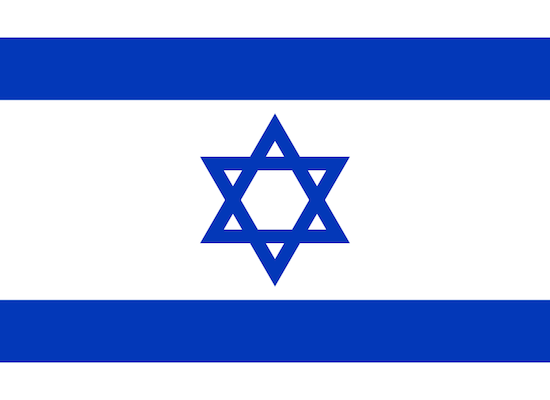The following op-ed was originally published in The Globalist.

Pictured: Israel’s Knesset (parliament) building in Jerusalem. (via Wikimedia)
U.S. media is abuzz with rumors over which Democrats will or will not attend Israeli Prime Minister Benjamin Netanyahu’s scheduled March speech to the U.S. Congress at the invitation of the Republicans. Many expressed concern that attending could be viewed as endorsing him in the upcoming elections.
Meanwhile, U.S. Vice President Joe Biden and Secretary of State John Kerry “spoke informally” in Munich with Mr. Netanyahu’s leading challenger, Isaac Herzog, fueling further controversy. This framing of the news speaks to the overly reductive nature of U.S. coverage of overseas elections, which tries to fit all stories to the U.S. horserace model.
Outside that lens, the Israeli electoral system is notoriously complex. This year, at least 16 parties will contest the snap parliamentary elections that current Prime Minister Netanyahu has called for March 17.
These parties vie for a total of semi-proportionally elected 120 seats. A number of the parties will run their candidates, as usual, on temporary fusion lists, in part to clear the new three to four seat threshold.
Due to the voting complexity, predicting even the approximate distribution of seats across these many parties is often a fool’s errand.
A complex electoral system
This electoral reality in Israel generally produces short-lived coalition governments featuring a kaleidoscope of parties and unstable partnerships of two or more parties.
Even so, at the present time, much is made in Washington about who will head the next Israeli coalition government – incumbent Benjamin Netanyahu of Likud, or Labor Party leader Isaac Herzog and list partner Tzipi Livni of centrist Hatnuah.
Independent of who “wins” – by taking the most seats or forming a coalition government — it is almost impossible to predict what the policy results of the election might be under either outcome.
Those policies – changed for the better or as static and uncooperative as at present – are not so much determined by whoever is prime minister, but by the governing coalition’s composition.
In other words, even a change in the prime minister’s chair might not actually significantly shift policy – domestically or on military/diplomatic affairs – unless there is a perfect storm of results for every party necessary to forge such changes.
In a more traditional and simplified election system, Mr. Netanyahu would provide a conservative government, while Mr. Herzog would provide a center-left government assisted by Ms. Livni. (Even then, the ideological alignment of the latter would be in some doubt because it really consists of a center-left and centrist party.)
No clear winner in sight
Based on recent polling, however, Herzog/Livni alone would win between 22 and 26 seats, far short of a 61-seat majority. Likud could win 20 to 27 seats, also falling short.
Therefore, in reality, getting to a majority (or stable minority government) depends on a range of parties outside the big two or three.
Even the four major left-leaning lists together and the four major right-leaning lists together are expected to win only about 43 and 61 seats each, respectively, under their current best-case projected outcomes. It seems likelier that they will take about 40 or 45 each. That makes this election even more complicated.
Thus, even with four big lists cooperating on each side after the election, either winner would still need to cobble together a coalition – beyond that core four – from the smaller lists expected to cross the minimum threshold to hold seats.
Within the nine other party lists (beyond Labor/Hatnuah and Likud) that are expected to win seats in the Knesset is a veritable pantheon of ideologies.
These run the gamut from communist to right-wing nationalist, from Islamist (the “United Arab List” Party currently represented with three seats in the Knesset) to hardline Orthodox Jewish (e.g., “United Torah Judaism” currently represented with seven seats), as well as everything in between.
What this means in practical terms is that the ultimate policy positions of a resulting coalition could be very contradictory.
Based on past coalitions, it is entirely possible, for example, that Mr. Herzog of Labor could become prime minister, but have extremely right-wing cabinet members outside his own party.
All of the combinations themselves depend on how each party fares in the election and how many seats it can bring to the majority. The electoral math for the smaller parties alone makes one’s head spin, even assuming relatively logical ideological groupings in a final coalition.
The hopeful scenario
One scenario that might actually change things on both economic issues and the question of the Palestinian territories would be a nine-party coalition led by Herzog. Read more






